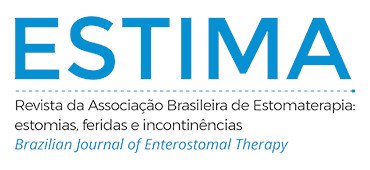URINARY AND INTESTINAL SYMPTOMS IN PUBLIC ELEMENTARY SCHOOL CHILDREN
Abstract
Objective: survey the occurrence of urinary and intestinal symptoms in children from public elementary schools in the capital of Paraná. Method: quantitative, exploratory-descriptive and cross-sectional study. Sample of parents/ guardians who completed the following instruments: Dysfunctional Voiding Scoring System; Rome IV criteria; Bristol scale. Analysis performed by IBM SPSS Statistics v.20.0. Data were collected from August to October 2019. Inclusion criteria were the child being enrolled and regularly attending elementary school and the delivery of the completed or partially completed questionnaire. Results: 458 questionnaires were delivered. Of those fully completed, 51.9% were girls, and the age was 7.7 years; 83% of the children had some urinary and/or intestinal symptoms of low severity. There was no significant difference in symptoms between genders, and with a significant increase in severity in children aged 7 years and under. Most prevalent symptoms: reduced voiding frequency, reduced defecation frequency, defecation effort, voiding urgency and containment maneuvers; 39.6% of the children had Functional Intestinal Constipation. Bladder and bowel dysfunction in 35 children, the highest prevalence in females. Conclusion: high occurrence of urinary and intestinal symptoms in children. The most prevalent symptom was constipation.
Downloads
Metrics
References
Austin PF, Bauer SB, Bower W, Chase J, Franco I, Hoebeke P et al. The standardization of terminology of lower urinary tract function in children and adolescents: Update report from the standardization committee of the International Children’s Continence Society. Neurourol Urodyn. 2016;35(4):471-81. https://doi.org/10.1002/nau.22751
Santos J, Lopes RI, Koyle MA. Bladder and bowel dysfunction in children: An update on the diagnosis and treatment of a common, but underdiagnosed pediatric problem. Can Urol Assoc J. 2017;11(1-2Supl1):S64-72. https://doi.org/10.5489/cuaj.4411
Jankauskienė A, Vaičiūnienė D, Stacevičienė I. Prevalence of lower urinary tract symptoms in Vilnius area children and adolescents. Acta Med Litu. 2014; 21(1):27-33. https://doi.org/10.6001/actamedica.v21i1.2886
ERIC, The Children’s Bowel & Bladder Charity [internet] Bristol: ERIC, The Children’s Bowel & Bladder Charity; [citado 2019 fev 19]. ERIC’s strategic plan 2017-2020; 2017. Disponível em: https://www.eric.org.uk/Handlers/Download.ashx?IDMF=c7a02cd3-1374-49ea-84b7-0b99d56cf4c3
Mota DM, Barros AJD, Matijasevich A, Santos IS. Prevalence of enuresis and urinary symptoms at age 7 years in the 2004 birth cohort from Pelotas, Brazil. J Pediatr. 2015; 91(1):52-8. https://doi.org/10.1016/j.jped.2014.04.011
Veloso LA, de Mello MJG, Neto JPMR, Barbosa LNF, e Silva EJC. Qualidade de vida, nível cognitivo e desempenho escolar em crianças portadoras de distúrbio funcional do trato urinário inferior. J Bras Nefrol. 2016;38(2):234-44. http://doi.org/10.5935/0101-2800.20160033
Tatlow-Golden M, O’Farrelly C, Booth A, Doyle O. “Bursting” to Go and Other Experiences: Children’s Views on Using the Toilet in the First School Year. J Sch Nurs. 2017;33(3):214-22. https://doi.org/10.1177/1059840516646422
Norling M, Stenzelius K, Ekman N, Wennick A. High School Students’ Experiences in School Toilets or Restrooms. J Sch Nurs. 2016;32(3):164-71. https://doi.org/10.1177/1059840515611476
Calado AA, Araujo EM, Barroso U, Netto JMB, Filho MZ, Macedo A et al. Crosscultural adaptation of the dysfunctional voiding score symptom (DVSS) questionnaire for Brazilian children. Int Braz J Urol. 2010;36(4):458-63. https://doi.org/10.1590/S1677-55382010000400009
Lacy BE, Mearin F, Chang L, Chey WD, Lembo AJ, Simren M et al. Bowel Disorders. Gastroenterology. 2016;150(6):1393-407. https://doi.org/10.1053/j.gastro.2016.02.031
Martinez AP, Azevedo GR. Tradução, adaptação cultural e validação da bristol stool form scale para a população brasileiro. Rev Lat-Am Enfermagem. 2012;20(3):583-9. http://doi.org/10.1590/S0104-11692012000300021
Sampaio C, Sousa AS, Fraga LGA, Veiga ML, Netto JMB, Barroso U. Constipation and Lower Urinary Tract Dysfunction in Children and Adolescents: A Population-Based Study. Front Pediatr. 2016;4. https://doi.org/10.3389/fped.2016.00101
Zeevenhooven J, Koppen IJN, Benninga MA. The New Rome IV Criteria for Functional Gastrointestinal Disorders in Infants and Toddlers. Pediatr Gastroenterol Hepatol Nutr. 2017;20(1):1-13. http://doi.org/10.5223/pghn.2017.20.1.1
Hodges SJ. Enema Regimen in Pediatric Bladder Dysfunction. Curr Bladder Dysfunct Rep. 2017;12(3):225-8. https://doi.org/10.1007/s11884-017-0447-y
Wolfe-Christensen C, Guy WC, Mancini M, Kovacevic LG, Lakshmanan Y. Evidence of Need to Use Self-Report Measures of Psychosocial Functioning in Older Children and Adolescents with Voiding Dysfunction. J Urol. 2016;195(5):1570-4. https://doi.org/10.1016/j.juro.2015.11.045
Logan BA, Correia K, McCarthy J, Slattery MJ. Voiding dysfunction related to adverse childhood experiences and neuropsychiatric disorders. J Pediatr Urol. 2014;10(4):634-8. https://doi.org/10.1016/j.jpurol.2014.06.012
Conselho Federal de Enfermagem (COFEN). Parecer nº 04/2016/CTAS/COFEN. Manifestação sobre procedimentos da área de enfermagem [Internet]. Brasília: 2016. Disponível em: http://www.cofen.gov.br/parecer-no-042016ctascofen_45837.html
Associação Brasileira de Estomaterapia [internet]. São Paulo: Associação Brasileira de Estomaterapia; c2016 [citado 2020 Jan 14]. Competências do enfermeiro estomaterapeuta;. Disponível em: http://sobest.provisorio.ws/textod/19
Downloads
Published
How to Cite
Issue
Section
License
Copyright (c) 2021 Camilla Pinheiro Cristaldi da Silva, Juliane Nascimento Ribas Miranda, Drielle Fernanda Arruda, Gisele Martins, Gisela Maria Assis

This work is licensed under a Creative Commons Attribution 4.0 International License.

























